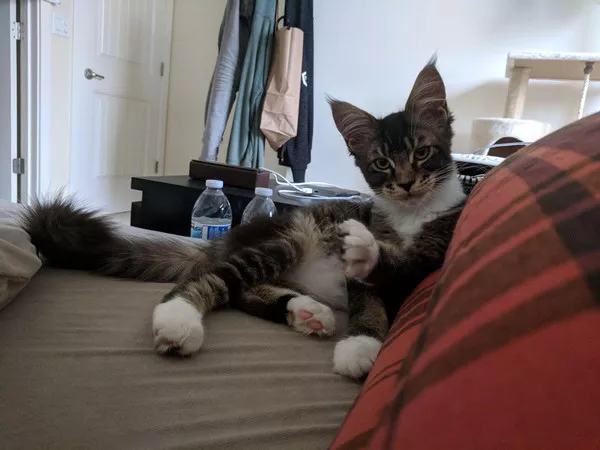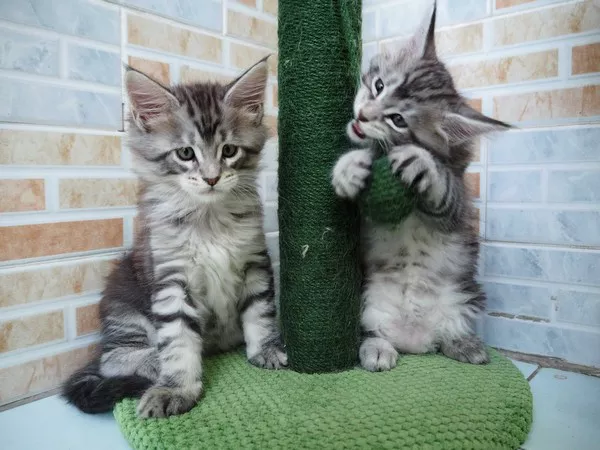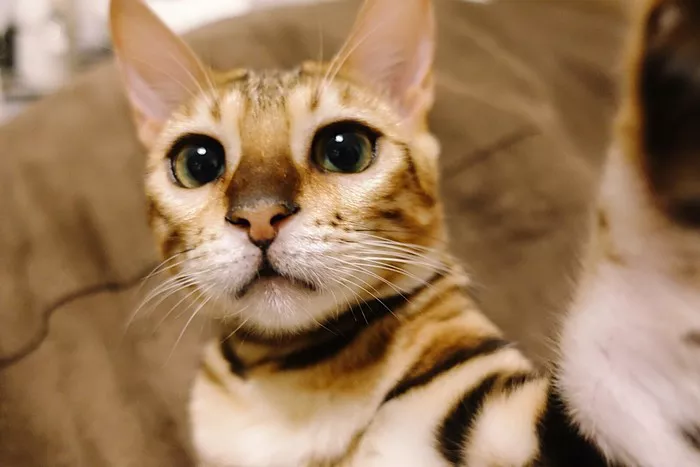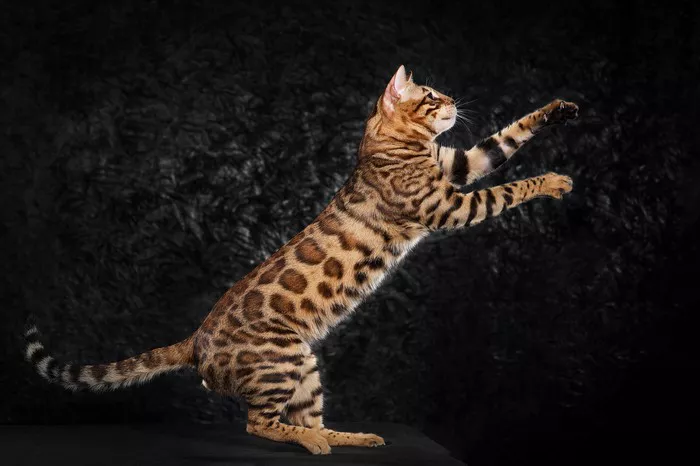Maine Coon cats are one of the most popular cat breeds in the world. These cats are known for their large size, fluffy fur, and friendly personalities. Many people wonder whether it is possible to keep a Maine Coon as an indoor cat. In this article, we will explore the pros and cons of having a Maine Coon as an indoor cat.
Pros of Keeping a Maine Coon Cat Indoors
There are several benefits to keeping your Maine Coon cat indoors. Here are some of the pros to consider:
1. Safety: Indoor cats are not exposed to the dangers of the outdoors such as traffic accidents, predators, and diseases. By keeping your Maine Coon indoors, you can ensure that they live a long and healthy life.
2. Comfort: Maine Coon cats are well adapted to living indoors. They are happy to lounge around the house all day, and they don’t require as much exercise as other breeds. This means that they are perfectly content with a cozy bed and a few toys to play with.
3. Bonding: When you keep your Maine Coon cat indoors, you have more opportunities to bond with them. You can spend more time together playing, cuddling, and grooming. This strengthens the bond between you and your pet.
4. Environmental Impact: By keeping your Maine Coon cat indoors, you are reducing their impact on the environment. Outdoor cats are known to hunt and kill birds and small mammals, which can have a negative impact on local ecosystems. By keeping your cat indoors, you can help protect wildlife in your area.
Cons of Keeping a Maine Coon Cat Indoors
While there are many advantages to keeping your Maine Coon cat indoors, there are also some disadvantages to consider. Here are some of the cons to keep in mind:
1. Exercise: Maine Coon cats are known for their love of exercise. They are natural hunters and enjoy running, jumping, and climbing. Indoor cats may not get as much exercise as outdoor cats, which can lead to obesity and other health problems.
2. Boredom: Indoor cats may become bored and restless if they don’t have enough stimulation. Maine Coon cats are intelligent and curious animals that need mental and physical stimulation to stay happy and healthy.
3. Destructive Behavior: If your Maine Coon cat is bored or unhappy, they may resort to destructive behavior such as scratching furniture or walls. This can be frustrating and expensive to deal with.
4. Litter Box Odor: Indoor cats require a litter box, and this can create an unpleasant odor in your home. Regular cleaning and maintenance are necessary to keep your home smelling fresh.
Tips for Keeping Your Maine Coon Cat Happy Indoors
If you decide to keep your Maine Coon cat indoors, there are several things you can do to keep them happy and healthy. Here are some tips to consider:
1. Provide Stimulation: Maine Coon cats need mental and physical stimulation to stay happy and healthy. Provide toys, scratching posts, and climbing structures to keep them entertained.
2. Create Safe Spaces: Cats like to have their own safe spaces where they can relax and feel secure. Provide cozy beds, blankets, and hiding places for your Maine Coon to retreat to when they need some alone time.
3. Playtime: Make time to play with your Maine Coon every day. This helps to strengthen the bond between you and your pet, and it provides them with the exercise and stimulation they need.
4. Litter Box Maintenance: Regular cleaning and maintenance of the litter box are essential to keep your home smelling fresh. Consider using a litter box with a lid to reduce odors.
Conclusion
Maine Coon cats can make great indoor pets. They are well adapted to living indoors and can be happy and healthy as long as they receive proper care and attention. While there are some disadvantages to keeping your Maine Coon indoors, these can be mitigated with proper stimulation, exercise, and safe spaces. Ultimately, the decision to keep your Maine Coon cat indoors or outdoors is up to you. Consider your pet’s needs and lifestyle, and make the choice that is best for both of you.



























